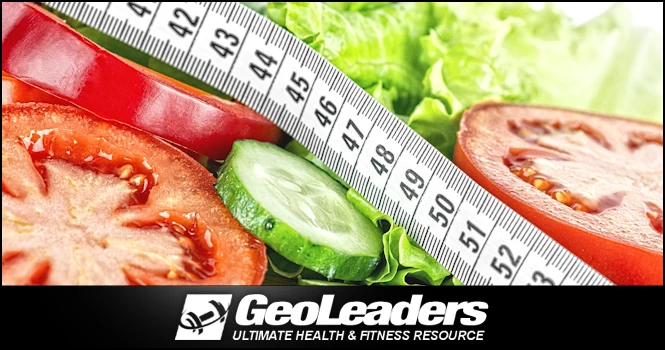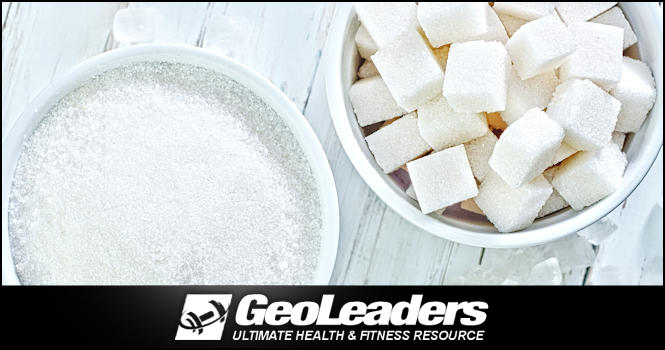What are the worst diet myths floating around the weight loss community today? Here’s a list of the top ten fallacies about weight loss nutrition and what to do instead.

Losing stubborn weight that just won’t budge, or getting yourself going again after hitting a wall, means avoiding being the victim of some of many misconceptions about diet.
In this nutrition guide, I’ll expose the top 10 myths when it comes to weight loss nutrition that keep dieters from achieving their weight loss goals.
With the right tools to separate fact from fiction, you’ll pave your way to a healthier, fitter you.
Ready to learn the biggest fairy tails when it comes to dieting? Let’s dive right in…
- PRO-TIP: Has your weight loss slowed down or come to a complete halt? A supplement can be a great tool to get the scale moving again. Check out our latest roundup of the top diet pills on the market to kickstart your metabolism once again.
The Top 10 Diet Myths That Are Sabotaging Your Weight Loss
The struggle is real – losing weight can feel like an uphill battle, fraught with challenges and frustrations.
Countless individuals have experienced the exasperation of encountering conflicting diet advice, each claiming to hold the secret to effortless weight loss.
Yet, more often than not, these promises lead to disappointment and shattered dreams of a slimmer figure.
So brace yourself for a journey of discovery as we expose these myths, one by one, and replace them with evidence-based strategies that will propel you toward tangible results.
It’s time to take control and reclaim your power in the face of misleading advice.
SAVE 20% ON OUR #1 BEST SELLING FAT BURNER!
Overall Rating: ★★★★★ (9.8)
For a limited time only, use the code LETSGO at checkout and SAVE 20% on Phentramin-D – Our #1 Best-Selling Fat Burner For Over 9 Years!
Diet Myth #1: Skipping Meals is a Good Way to Lose Weight
One of the most pervasive diet myths that has been circulating in the weight loss world is the idea that skipping meals is a surefire way to shed those extra pounds. It seems logical, right?
Less food equals fewer calories, which should theoretically lead to weight loss. However, this oversimplified view of weight management can backfire and hinder your weight loss efforts.
The Science Behind Meal Skipping
Contrary to popular belief, skipping meals doesn’t necessarily lead to weight loss. It can have the opposite effect.
When we skip meals, our bodies go into ‘starvation mode,’ a survival mechanism that our ancestors evolved to cope with periods of food scarcity. During this mode, the body slows down its metabolism to conserve energy, making it harder to burn calories.
A study published in the American Journal of Clinical Nutrition found that skipping meals led to increased hunger, a decrease in metabolic rate, and an increase in appetite-stimulating hormones.
This combination can lead to overeating when you finally do eat, often resulting in consuming more calories than if you had eaten smaller, more frequent meals throughout the day.
- PRO-TIP: Remember, weight loss is not about deprivation, but about creating a healthy and sustainable relationship with food. Instead of skipping meals, try incorporating a variety of nutrient-dense foods into your diet, and pay attention to portion sizes. Small, consistent changes can lead to big results over time.
Meal Planning and Portion Control
Instead of skipping meals, a more effective and sustainable approach to weight loss is through meal planning and portion control.
Planning your meals ensures you’re getting the right amount of nutrients your body needs to function optimally, while portion control helps manage your calorie intake.
By consuming balanced meals at regular intervals, as highlighted in Tosca Reno’s Eat Clean Diet, you can maintain steady blood sugar levels, curb hunger pangs, and prevent overeating.
This approach also promotes a healthier relationship with food, as it encourages mindful eating rather than restrictive dieting.
As we debunk these diet myths, it’s important to remember that there’s no one-size-fits-all solution to weight loss. What works for one person may not work for another. It’s about finding a balance that works for your body and lifestyle.
- KEY TAKEAWAY: Contrary to popular belief, skipping meals can hinder weight loss by slowing metabolism and increasing hunger. A more effective approach involves regular, balanced meals with proper portion control, fostering a healthier relationship with food, and promoting sustainable weight loss.
Diet Myth #2: Carbs are Bad for You
The second myth we’re busting today is the infamous “Carbs are Bad for You” claim.
This myth has led many to believe that all carbohydrates are the enemy of weight loss, causing people to eliminate them from their diets completely.
However, this approach is not only misguided but in some cases, can also be detrimental to your weight loss efforts and overall health.
The Good, the Bad, and the Carby
First off, it’s important to understand that not all carbs are created equal. There are ‘good’ carbs, also known as complex carbohydrates, and ‘bad’ carbs, or simple carbohydrates.
Good carbs, such as whole grains, fruits, vegetables, and legumes, are high in fiber, which slows down their digestion.
This slow digestion helps to maintain steady blood sugar levels, keeping you feeling full and satisfied for longer, and thus aiding in weight management.
On the other hand, bad carbs include refined and processed foods like white bread, pasta, pastries, breakfast cereals, soda, and beverages loaded with sugar.
These carbs are quickly digested, leading to spikes in blood sugar levels and leaving you feeling hungry soon after eating.
- PRO-TIP: Instead of eliminating carbs, focus on incorporating good carbs into your diet. Foods like quinoa, brown rice, and oats are excellent sources of complex carbohydrates that can help fuel your body and keep you feeling satisfied.
The Role of Carbs in Your Diet
Eliminating carbs entirely from your diet may actually harm your weight loss efforts. Carbohydrates are the body’s primary source of energy.
When you cut them out, your body has to use other sources, like dietary protein, for energy. This can lead to fatigue, difficulty concentrating, and even nutrient deficiencies.
A study published in The Lancet Public Health found that both high and low percentages of carbohydrate diets were associated with increased mortality, with minimal risk observed at 50–55% carbohydrate intake.
You can take what you will from that study, however, the bottom line is to remember when it comes to carbs and weight loss is that balance and moderation are key.
Eliminating an entire food group such as carbohydrates from your diet is rarely the answer. Instead, focus on creating a balanced nutrient-rich diet that includes a variety of nutrient-dense foods.
- KEY TAKEAWAY: The myth that all carbs are bad for weight loss is misleading. While refined and processed carbs can lead to blood sugar spikes, hunger, and fat storage, complex carbs like whole grains and vegetables provide sustained energy and help manage hunger. Eliminating all carbs may even harm weight loss efforts and overall health. Balance and moderation in diet are key.
Diet Myth #3: Fat is Bad for You
For years, we’ve been told that fat is the enemy. It’s been blamed for countless health problems and the rise of obesity. But is fat really the villain it’s made out to be? The answer might surprise you.
The Good, the Bad, and the Fatty
Let’s start by establishing that not all fats are created equal. There are good fats and bad fats, and knowing the difference is key to losing weight and maintaining health.
- Good Fats: Good fats, high in Omega-3 and low in Omega-6, can be found in foods like olive oil, walnuts, chia seeds, flaxseeds, and fish such as salmon, tuna, and mackerel. These fats are essential for our body as they provide energy, support cell growth, protect our organs, and help with nutrient absorption. They also play a crucial role in producing important hormones.
- Bad Fats: On the other hand, bad fats, which are high in Omega-6 and low in Omega-3 include trans fats and certain seed oils such as soybean, corn, and canola oils. These oils can cause inflammation, raise your LDL cholesterol levels, and increase your risk of heart disease [1]. These are typically found in processed foods, fried foods, and pastries.
The Redemption of Saturated Fat
Interestingly, recent research has started to challenge the notion that all saturated fats are bad for you.
Some studies suggest that saturated fat might not be as harmful as previously thought. We now know that certain types of saturated fats, such as those found in coconut oil and dark chocolate, might even have health benefits.
For instance, a study published in the American Journal of Clinical Nutrition found no significant association between dietary saturated fat and an increased risk of heart disease.
Another article from Medical News Today explains how not all saturated fats are the same, and some might be beneficial for health.
A report from the Harvard School of Public Health suggests that replacing saturated fats with refined carbs and sugars could do more harm than good, leading to an increased risk of heart disease and other health problems.
However, it’s important to note that these findings don’t give us a free pass to consume unlimited amounts of saturated fat when trying to lose weight. Balance and moderation are always key.
The High-Fat Diet Phenomenon
The role of fats in diets like Keto and Carnivore is a testament to the fact that not all fats are bad. These diets, which are high in fat (including saturated fats), and low in carbs, have gained popularity for their weight loss benefits.
They work on the principle of putting your body into a state of ketosis, where it burns fat for energy instead of carbohydrates. Many people have found weight loss success with these diets, further challenging the idea that fat is bad for you.
The Role of Fats in Your Diet
Similar to what I discussed about carbohydrates above, eliminating all fats from your diet may harm your weight loss efforts as well. Dietary fats provide energy, help the body absorb vitamins, and are essential for many bodily functions.
When you cut them out, you may experience fatigue, nutrient deficiencies, and a slower metabolism.
Not only that, fats can help you feel full and satisfied, preventing overeating.
A study published in the Journal of Nutrition found that people who included fats in their meals felt fuller and had less desire to eat over the next few hours than those who had fat-free meals [2].
- KEY TAKEAWAY: The myth that all fat is bad for you is just that – a myth. While it’s true that some fats should be consumed in moderation, other fats are beneficial for your health. So, don’t be afraid of fats. Instead, learn to choose the right kinds of fats and incorporate them into your diet in a balanced way. Your body will thank you.
Diet Myth #4: All Calories are Created Equal
The fourth myth we’re debunking today is the idea that “All Calories are Created Equal”. This myth has led many to believe that weight loss is simply a matter of eating fewer calories, regardless of where those calories come from.
However, this approach oversimplifies the complex nature of nutrition and can hinder your weight loss efforts.
So while it may sound appealing to think that you can eat donuts and still lose weight, the reality is quite different.
The Concept of Energy Density
Energy density refers to the number of calories (or energy) in a specific amount of food. Foods with high energy density, such as fast food and processed snacks, pack a lot of calories into a small volume.
On the other hand, foods with low energy density, like fruits and vegetables, provide fewer calories but more volume.
Why does this matter for weight loss? Well, research has shown that people tend to eat a consistent volume of food.
So, by choosing foods with lower energy density, you can eat the same volume of food while consuming fewer calories.
The Importance of Nutrient-Dense Foods
When it comes down to it, it’s not just about eating fewer calories. The quality of those calories matters too.
This is where the concept of nutrient density comes in. Nutrient-dense foods are rich in vitamins, minerals, and other nutrients important for your health, but relatively low in calories.
For example, an apple and a handful of candy might have the same number of calories. But the apple is packed with nutrients and fiber that can keep you feeling full and satisfied, while the candy offers little nutritional value and can leave you craving more.
Reducing Calorie Intake Without Sacrificing Nutrition
So, how can you reduce your calorie intake without sacrificing nutrition? Here are a few tips:
- Choose whole, unprocessed foods: These foods are generally lower in energy density and higher in nutrient density than processed foods.
- Fill half your plate with fruits and vegetables: They’re high in volume but low in calories, helping you feel full without overloading on calories.
- Pay attention to portion sizes: Even healthy foods can contribute to weight gain if you eat them in large amounts.
Remember, it’s not just about eating less but eating smart. By focusing on the quality of your calories, you can support your weight loss goals while also improving your overall health.[/su_note]
- KEY TAKEAWAY: The myth that all calories are equal overlooks the importance of energy density and nutrient density in weight loss. Consuming low-energy density and nutrient-rich foods, like fruits and vegetables, can lead to lower calorie intake while maintaining satiety and nutritional needs. It’s not just about eating fewer calories, but focusing on the quality of those calories for sustainable weight loss.
Diet Myth #5: You Can Spot-Reduce Fat
The fifth myth we’re tackling is the idea that you can spot-reduce fat. This myth has led many to believe that by doing hundreds of crunches, they can specifically burn belly fat, or by doing leg lifts, they can slim down their thighs.
But the reality is, this is not how our bodies work.
The Impossibility of Spot Reduction
The concept of spot reduction is based on the flawed idea that you can burn fat in specific areas of your body by simply exercising those areas.
However, when you exercise, your body doesn’t draw energy from the nearby fat tissue. Instead, it burns fat from all over your body.
Scientific evidence supports this.
A study published in the Journal of Strength and Conditioning Research investigated the impact of a 12-week localized muscle endurance resistance training program on body composition.
The program involved training with the nondominant leg and consisted of high-repetition leg press exercises.
While no significant changes were observed in whole-body composition (body mass, bone mass, bone mineral density, lean mass, or body fat percentage), there was a significant decrease in fat mass, particularly in the upper extremities and trunk, but not in the trained leg. [3].
The results of the study suggest that although a training program can effectively reduce fat mass, exercising a specific body part doesn’t burn fat in that area alone.
- PRO-TIP: Remember, it’s not just about losing weight, but about improving your overall health. Regular exercise and a balanced diet are key to achieving both of these goals.
The Importance of Overall Weight Loss and Exercise
Instead of trying to spot-reduce fat, focus on losing weight overall. This can be achieved through a combination of regular physical activity and a healthy diet.
When you create a calorie deficit, your body will burn stored fat for energy from all over your body, not just one specific area.
Regular exercise is also crucial for maintaining muscle mass during weight loss. By incorporating strength training into your routine, you can ensure that you’re losing fat, not muscle.
Moving Forward
So, the next time you see a workout promising to blast belly fat or slim down your thighs, remember that spot reduction is a myth. Instead, focus on achieving a healthy weight and maintaining a balanced diet. Your body will decide where the fat comes from.
- KEY TAKEAWAY: The myth of spot-reducing fat is a fitness fallacy. Scientific evidence shows that exercising specific body parts doesn’t burn fat in those areas alone, but rather, fat is burned uniformly across the body. The real key to fat loss lies in overall weight reduction through a balanced diet and regular physical activity, not in thousands of crunches.
Diet Myth #6: You Shouldn’t Eat After 8 pm
Let’s dive into another widely accepted weight loss myth: the idea that eating after 8 p.m. leads to weight gain.
The eating after 8 pm myth has been ingrained in our minds, making us feel guilty about late-night snacking.
But is there any scientific truth to it? Let’s find out.
The Clock Doesn’t Dictate Calorie Count
First off, it’s essential to understand that calories don’t tell time. Your body doesn’t magically start storing more fat once the clock strikes 8.
The primary factor affecting weight gain or loss is your overall calorie intake versus your calorie expenditure, not the timing of your meals [4].
If you consume more calories than you burn, you’ll gain weight, regardless of when you eat.
The Science Behind Eating Late
Early time-restricted feeding (eTRF) is a form of intermittent fasting where individuals finish their last meal by 3 pm. Research has found that eTRF improved various health markers, including glucose levels, markers of the circadian clock, aging, and autophagy in humans [5].
However, these benefits were not linked to weight loss but rather to improved metabolic health.
This study suggests that while eating later in the day might not directly lead to weight gain, it could affect other aspects of metabolic health.
It’s important to note that the study focused on a very early cut-off time (3 p.m.), which is not practical for most people’s lifestyles.
The Importance of Calorie Balance
The key takeaway here is that it’s not so much about when you eat, but what and how much you eat. If you’re eating balanced, nutrient-dense meals and maintaining a calorie deficit, you’ll lose weight, whether you finish eating at 6 p.m. or 10 p.m.
But, late-night eating can often be mindless, leading to overconsumption of high-calorie, low-nutrient foods.
So, if you find yourself frequently reaching for unhealthy snacks late at night, it might be worth considering setting an eating cut-off time for yourself.
Not because eating after a certain time causes weight gain, but to help manage your overall calorie intake.
- KEY TAKEAWAY: Eating after 8 p.m. won’t directly cause weight gain. The reality is that your body doesn’t clock-watch; weight gain or loss is determined by the balance of energy consumed versus energy burned, not the timing of your meals. However, mindful eating habits are crucial, as late-night snacking can often lead to overconsumption of high-calorie, low-nutrient foods.
Diet Myth #7: Detox Diets are a Good Way to Lose Weight
Ah, the allure of the detox diet. Who wouldn’t want a quick fix to flush out all those pesky toxins and drop a few pounds in the process?
But before you reach for that detox tea or embark on a juice cleanse, let’s debunk this myth.
The Natural Detox System
First and foremost, it’s important to understand that our bodies are naturally equipped with a detoxification system.
Our liver, kidneys, and even our skin work around the clock to filter out and eliminate toxins. So, the idea that we need to follow a special diet to detoxify our bodies isn’t just unnecessary – it’s misleading.
While it’s true that you may see a drop in the scale after a detox diet, don’t get too excited because this progress is often short-lived.
Once you return to your regular eating habits, you’re likely to regain the weight you lost and possibly even more, thanks to the slowed-down metabolism caused by extreme calorie restriction.
What Does The Science Say?
A critical review published in the Journal of Human Nutrition and Dietetics found limited evidence to support the use of detox diets for toxin elimination and weight loss [6]. While detox diets have surged in popularity and the detox industry is booming, minimal clinical data shows these diets effectively remove toxins or promote weight loss.
A small number of studies have shown certain commercial detox programs may enhance liver detoxification and help eliminate persistent organic pollutants from the body. However, these studies had flawed methodologies and tiny sample sizes, making it difficult to draw firm conclusions.
More high-quality randomized controlled trials are needed to truly assess whether detox diets facilitate toxin elimination or aid weight loss in humans. Currently, the science does not strongly support the use of these diets for health and well-being.
Impact On Overall Health
Furthermore, detox diets can have negative effects on your overall health. They often lack essential nutrients, which can lead to malnutrition and other health problems.
These types of programs can also disrupt your gut microbiota, leading to digestive issues.
So, instead of falling for the detox diet myth, focus on maintaining a balanced diet rich in fruits, vegetables, lean proteins, and whole grains.
Regular physical activity, adequate hydration, and good sleep are also crucial for maintaining your health and supporting your body’s natural detoxification process.
- KEY TAKEAWAY: Detox diets, despite their allure, are not the magic bullet for weight loss. Our bodies are naturally equipped with a detoxification system, and the weight loss from such diets is often temporary and due to water and muscle loss, not fat loss. Instead of falling for this myth, a balanced diet, regular physical activity, adequate hydration, and good sleep are the real keys to success.
Diet Myth #8: You Need to Drink 8 Glasses of Water a Day
Hydration is undoubtedly essential for our bodies to function optimally, and it plays a significant role in weight loss.
However, the commonly held belief that everyone needs to drink eight glasses of water a day is a bit of a simplification.
The Importance of Hydration for Weight Loss
Staying well-hydrated aids in weight loss in several ways. First, it helps to increase satiety, making you feel fuller and thus reducing the likelihood of overeating. Next, drinking water can boost your metabolism, helping your body burn calories more efficiently [7].
Individual Water Intake Needs
The amount of water each person needs can vary greatly and depends on numerous factors, including body weight, activity level, and climate.
For instance, someone who is physically active or lives in a hot climate will need to consume more water than someone who is sedentary or lives in a cooler climate.
A more personalized approach to hydration is to listen to your body’s signals. Thirst is an obvious sign that you need to drink more.
Additionally, the color of your urine can be a good indicator of your hydration status. Pale, straw-colored urine typically indicates good hydration, while darker urine can be a sign of dehydration.
Tips for Staying Hydrated
Here are a few tips to help you stay hydrated throughout the day:
- Start your day with water. After a night’s sleep, your body needs to replenish its water supply. Starting your day with a glass of water can help kickstart this process.
- Carry a water bottle. Having a water bottle on hand can serve as a visual reminder to drink more, and it ensures that you have water available whenever you need it.
- Eat water-rich foods. Many fruits and vegetables, such as cucumbers, watermelon, and oranges, have high water content and can contribute to your daily water intake.
- Flavor your water. If you find plain water boring, try adding a slice of lemon, lime, or cucumber for a refreshing twist.
- KEY TAKEAWAY: While staying hydrated is crucial for weight loss and sound health, the “8 glasses a day” rule is not a one-size-fits-all guideline. The amount of water each person needs can vary based on factors like body weight, activity level, and climate. Instead of adhering strictly to this rule, listen to your body’s signals and ensure you’re consuming water-rich foods and carrying a water bottle to encourage regular hydration.
Diet Myth #9: Low-Fat Foods Are Better for Weight Loss
In the quest for a slimmer waistline, many of us have been led to believe that low-fat foods are our allies.
But here’s a plot twist: not all low-fat foods are created equal, and they’re not always the healthier choice.
Some low-fat foods can be loaded with added sugars and preservatives, which can sabotage your weight loss efforts.
The Hidden Pitfalls of Low-Fat Foods
When fat is removed from foods, it often takes the flavor with it. To make up for this loss, food manufacturers often add other ingredients like sugar, flour, thickeners, and salt.
These additives can lead to a higher calorie count and less nutritional value.
A study published in the journal “Circulation” highlighted that diets emphasizing the consumption of fruits, vegetables, and whole grains produced substantial improvements in several risk factors, including blood pressure, lipid levels, insulin resistance, inflammatory biomarker levels, endothelial function, and weight control [8].
Reading Labels: Your Secret Weapon
The key to navigating the low-fat food maze is to become a savvy label reader.
Look beyond the “low-fat” claim on the front of the package and dive into the nutrition facts and ingredient list on the back.
Watch out for added sugars (which can appear under names like corn syrup, maltose, dextrose, sucrose, and fruit juice concentrate) and artificial preservatives.
Embracing Healthy Fats
Contrary to popular belief, not all fats are bad for you. Your body needs certain fats to function properly.
Monounsaturated and polyunsaturated fats, found in foods like avocados, nuts, seeds, and fish, can help reduce levels of “bad” LDL cholesterol and increase “good” HDL cholesterol.
Here are a few tips on how to incorporate healthy fats into your diet:
- Swap out saturated fats (like those found in meat and full-fat dairy products) for healthier fats. For example, use olive oil instead of butter.
- Snack on a handful of nuts instead of reaching for a bag of chips.
- Add slices of avocado to your salads and sandwiches.
- Opt for fatty fish like salmon or mackerel at least twice a week.
- KEY TAKEAWAY: While it might seem counterintuitive, incorporating healthy fats into your diet can help you lose weight. So, the next time you’re at the grocery store, don’t just automatically reach for the low-fat version of your favorite food. Take a moment to read the label, and make the choice that’s truly best for your health.
Diet Myth #10: Exercise is Not Necessary for Weight Loss
The idea that exercise is not necessary for weight loss is a myth that can lead to unhealthy habits and a lack of overall well-being.
While it’s true that diet plays a significant role in weight loss, exercise is an essential component of a healthy lifestyle and can aid in both weight loss and maintenance.
The Importance of Exercise for Overall Health and Weight Loss
Exercise is crucial for overall health. It helps maintain a healthy heart, strengthens bones, improves mental health, and can even boost your mood. But when it comes to weight loss, the role of exercise is often misunderstood.
While it’s possible to lose weight without exercise by maintaining a calorie deficit, incorporating physical activity into your routine can help accelerate weight loss and lead to better health outcomes.
Exercise helps increase your metabolic rate, which in turn helps you burn more calories – even when you’re at rest.
Moreover, exercise can help preserve lean muscle mass during weight loss, which is often lost along with fat when you lose weight through diet alone.
Preserving lean muscle mass can help prevent weight regain, as muscle is metabolically more active than fat.
Scientific Evidence Supporting the Role of Exercise in Weight Loss
Several scientific studies support the role of exercise in weight loss and overall health.
For instance, a study published in the journal “Circulation” found that lifestyle changes, including physical activity, significantly reduced the incidence of diabetes in individuals at high risk. The study showed that lifestyle interventions focused on physical activity, healthy diets, and weight loss can reduce diabetes risk by 58% [9].
This study underscores the importance of exercise not just for weight loss, but also for the prevention of chronic diseases.
The Most Effective Types of Exercise for Weight Loss
When it comes to weight loss, the most effective exercise is the one you enjoy and can stick with consistently. However, a combination of both aerobic exercises like running, swimming, or cycling, and strength training exercises can be particularly effective.
Aerobic exercises help burn a lot of calories in a single session, while strength training helps build muscle, which can increase your resting metabolic rate and help you burn more calories throughout the day.
- KEY TAKEAWAY: While diet is a crucial component of weight loss, exercise plays an essential role in maintaining overall health and aiding weight loss and maintenance. It’s important to find a balance between a healthy diet and regular physical activity to achieve sustainable weight loss and improve overall health.
Conclusion: Busting Diet Myths for Better Weight Loss Results
As we’ve journeyed through the maze of diet myths, we’ve uncovered some surprising truths.
From the misguided notion that skipping meals aids weight loss, to the vilification of carbs and fats, and the oversimplification of calorie counting, it’s clear that the path to weight loss is often obscured by misinformation.
The truth is, there’s no one-size-fits-all approach to weight loss. What works for one person may not work for another.
But by debunking these common diet myths, we hope to have cleared the path a little, making your weight loss journey less daunting and more successful.
Let’s recap what we’ve learned:
- Skipping meals can lead to overeating later in the day, sabotaging your weight loss efforts.
- Carbs and fats are not your enemies. It’s about choosing the right kinds and understanding their role in a balanced diet.
- All calories are not created equal. The source of your calories matters as much as the quantity.
- Spot-reducing fat is a myth. Overall weight loss and exercise are key to reducing body fat.
- Eating after 8 p.m. doesn’t automatically lead to weight gain. It’s more about what and how much you’re eating.
- Detox diets are not a magic bullet for weight loss and can even be harmful to your health.
- Drinking 8 glasses of water a day is a guideline, not a rule. Hydration needs can vary.
- Low-fat foods are not always the healthier choice. They often contain added sugars and preservatives.
- Exercise is a crucial component of a healthy weight loss plan, not an optional extra.
- The timing of your meals doesn’t affect weight loss as much as the overall quality and quantity of your food.
Remember, sustainable weight loss is about creating healthy habits, not following restrictive diets, or falling for quick-fix solutions. It’s about making informed decisions that support your overall health and well-being.
In the end, remember this: the path to weight loss may be riddled with myths, but armed with the right knowledge, you’re more than capable of navigating your way to success.
SAVE 20% ON OUR #1 BEST SELLING FAT BURNER!
Overall Rating: ★★★★★ (9.8)
For a limited time only, use the code LETSGO at checkout and SAVE 20% on Phentramin-D – Our #1 Best-Selling Fat Burner For Over 9 Years!
Transparency Disclosure: Some of the links in this post are affiliate links. This means we may make a small commission on purchases at no extra cost to our readers. Thank you for your support!




